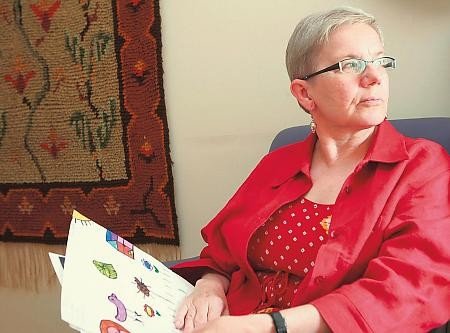Sukkuloidessani netissä huomasin, että Helsingin Sanomat oli julkaissut nettimuotoisessa international editionissaan Jaana Laitisen minusta tekemän haastattelun. Kuten ystävällismielinen toimittaja usein tekee, niin tässäkin minun osuuttani Beit Atfal Assumoudin ja Psykologien Sosiaalisen Vastuun yhteisissä hankkeissa on suuresti liioilteltu. Minun nimiini on mennyt semmoistakin, josta kunnia kuuluu Sirkku Kivistölle. Työssä Libanonin palestiinalaispakolaisten auttamiseksi Sirkku on osoittanut sellaista pitkäjänteisyyttä, joustavuutta, kekseliäisyyttä ja kykyä soveltaa oman alan tietoja ja taitoja vieraisiin ja poikkeuksellisiin oloihin, että hän ansaitsisi tänä vuonna Suomen Psykologiliiton myöntämän vuoden psykologin tittelin. Perustelut voisivat olla samat kuin Oscar-gaalassa: "elämäntyöstä".
Mutta kun muut ovat kirjoittaneet puolestani ja vielä kielellä, joka sujuu minulta kankeasti, tässä se, mitä Helsingin Sanomat kertoo minun sanoneen. Haastattelu tehtiin 11.8.
Psychologist concerned about plight of Lebanon's children
Kirsti Palonen helped Lebanese orphans during civil war
|
By Jaana Laitinen
Kirsti Palonen, 59, a psychologist living in Helsinki, is upset.
She has worked long to help Palestinian children who have suffered in the civil war in Lebanon in the 1970s. About half a million Palestinians live as refugees in Lebanon, and they are among the poorest in the country.
Now the southern part of Lebanon is in ruins again, and the souls of many new children have been scarred.
"What has been achieved through the work of many years has been destroyed", she says. "The houses and villages might be repaired fairly soon, but the reconstruction of people takes decades."
Palonen knows the effect that war can have on a child. She has headed a project of the Finnish Psychologists for Social Responsibility, which has been going on for more than two decades, in which children who were orphaned in the previous Lebanese war are helped. Palonen has also visited Israel and the Palestinian Territories several times.
"Children's depressions and stress disorders are increasing at an explosive rate", she says.
"In a situation in which a child has much fear, strong memories are created. The child remembers what war smells, looks, and sounds like: burning houses, crying people, bombers flying, dust from the concrete of collapsed houses."
The situation in Lebanon is made more difficult by the fact the parents of the children who are caught up in the bombing now were children themselves during the previous war. They experienced the same horrors then. The old wounds and traumas are ripped open, and not all parents are able to support their children.
"Only the strongest are able to hold on to their roles as parents in that situation. Not all children will even express their pain. They want to lighten their parents' burden and keep hidden away that which is going on inside them."
The war situation has an extensive impact on the well-being of families, Kirsti Palonen says. She recently visited Jerusalem and the West Bank. On both sides local psychologists were telling the same story.
"Aggressive behaviour in children and school bullying have increased. Domestic violence has surged. When families have to stay inside, pressures are released in the home."
Children are taught by the war, and by adults, how to solve problems. "Children see that when there disagreement arise, it is time to grab a weapon. With children, the weapons are fists, stones, and sticks."
Children also learn the logic of revenge.
"During the Lebanese Civil War, if a bomb fell on a school on the east side of Beirut, schools on the Muslim side would soon be empty; revenge was certain to come. Children living in a war zone learn how to observe planes. If they fly low, an attack is coming. Then you have to run to safety."
"They are constantly alert and vigilant. They have to anticipate things in a way that children should not have to."
Palonen woke to the problems in the world while she was a student. At that time there was a war in Vietnam.
"It left strong images in one's mind. I especially remember two photographs. In one of them a girl who had been burned is running naked on a road. In another one, two children are lying on the ground, resting for a moment next to a bomb shelter. They were the start of my work on behalf of humanity."
She was one of the founders of a peace committee for her profession in the early 1980s. The organisation is now known as Finnish Psychologists for Social Responsibility. The first target was children who had been orphaned in Lebanon. With the help of a local partner, the children's homes and family homes were set up, where the children could grow up to be adults. Many of them are now working in activity centres supported by the organisation.
"They have become my friends that is another reason why it is so hard to bear this war."
Helsingin Sanomat / First published in print 17.8.2006

"Solidarity is a more topical word than ever", says psychologist Kirsti Palonen, who is especially concerned about the plight of children in Lebanon. Photo: MARJA VÄÄNÄNEN / LEHTIKUVA
Kirsti Palonen
Kommentit